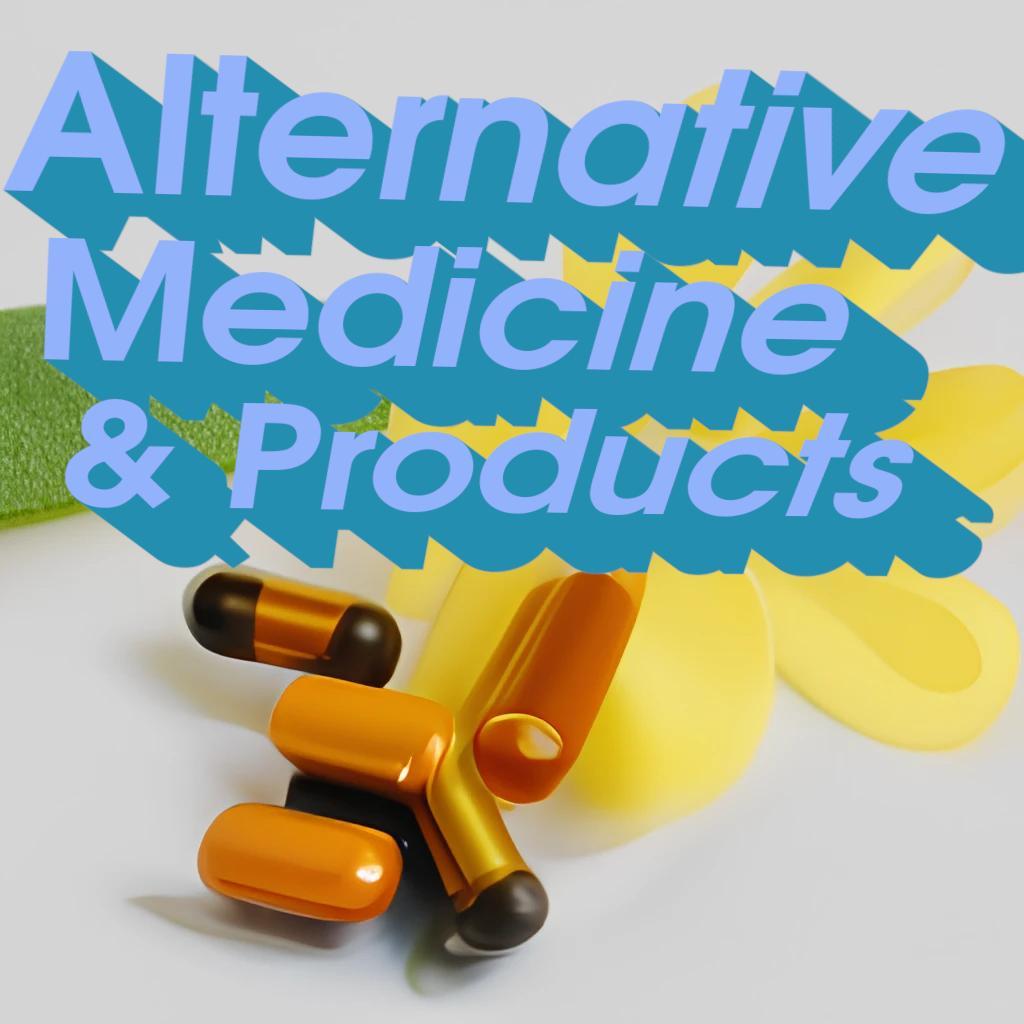








In recent years, there has been a growing interest in alternative medicine and products as individuals seek holistic approaches to health and wellness. From herbal remedies to mind-body practices, the world of alternative medicine offers a diverse array of options. In this comprehensive guide, we will delve into the realm of alternative medicine, exploring its various modalities and providing useful tips for those curious about integrating these practices into their wellness journey.
Defining Alternative Medicine:
Alternative medicine, often referred to as complementary or integrative medicine, encompasses a range of practices and treatments that fall outside the scope of conventional Western medicine. These approaches emphasize a holistic view of health, considering the interconnectedness of the mind, body, and spirit.
Research and Informed Decision-Making:
Before incorporating alternative medicine into your wellness routine, conduct thorough research on specific practices or products. Seek reputable sources, consult with healthcare professionals, and ensure that the chosen approach aligns with your health goals and medical history.
Mind-Body Practices:
Mind-body practices, such as meditation, yoga, and tai chi, focus on the connection between mental and physical well-being. These practices can reduce stress, improve mental clarity, and contribute to an overall sense of balance. Consider integrating a mind-body practice that resonates with you into your daily routine.
Herbal Remedies and Supplements:
Herbal remedies and dietary supplements are common in alternative medicine. While some herbs have proven health benefits, others may interact with medications or have potential side effects. Consult with a qualified healthcare professional before incorporating herbal remedies or supplements into your regimen.
Acupuncture and Traditional Chinese Medicine:
Acupuncture, a key component of Traditional Chinese Medicine (TCM), involves the insertion of thin needles into specific points on the body to promote energy flow and balance. Consider acupuncture for conditions like chronic pain, stress, or digestive issues, and consult with a licensed acupuncturist.
Ayurveda:
Ayurveda, an ancient system of medicine from India, focuses on balancing the body's energies (doshas) through lifestyle, diet, and herbal remedies. Explore Ayurvedic practices to enhance overall well-being, and seek guidance from a qualified Ayurvedic practitioner.
Chiropractic Care:
Chiropractic care involves spinal adjustments to alleviate musculoskeletal issues and promote overall health. Consider chiropractic care for conditions like back pain or migraines, ensuring that you consult with a licensed chiropractor for personalized and safe treatment.
Aromatherapy and Essential Oils:
Aromatherapy utilizes the aromatic properties of essential oils to promote physical and psychological well-being. Experiment with essential oils for relaxation, stress relief, or improved sleep. Ensure proper dilution and consult with experts to use essential oils safely.
Holistic Nutrition:
Holistic nutrition emphasizes the importance of whole foods and their impact on overall health. Consider consulting with a holistic nutritionist to develop a personalized dietary plan that aligns with your specific health goals and addresses potential nutritional deficiencies.
Integrating Alternative and Conventional Medicine:
It's essential to communicate openly with healthcare providers about your interest in alternative medicine. Integrative medicine involves combining conventional and alternative approaches for a comprehensive and personalized healthcare plan. Collaboration with healthcare professionals ensures a holistic approach to your well-being.
Alternative medicine refers to any form of healing or treatment that falls outside the scope of conventional medical practices. It encompasses a wide range of practices, including herbal medicine, acupuncture, chiropractic, homeopathy, naturopathy, and many others.
Alternative medicine approaches may focus on the whole person, including the mind, body, and spirit, rather than just treating the symptoms of a specific illness or condition. Many people turn to alternative medicine as a complement to conventional medical treatments or when they have not found relief with conventional medicine.
It is important to note that while some alternative medicine practices have been scientifically studied and proven to be effective, many others have not been rigorously tested or may even be harmful. It is always important to consult with a qualified healthcare professional before trying any alternative medicine approach.
Alternative medicine products refer to any substances or supplements that are used as a form of alternative medicine. These products can come in various forms, including pills, powders, teas, tinctures, creams, and other preparations.
Alternative medicine products may contain natural ingredients, such as herbs, vitamins, minerals, and other dietary supplements. They may also include substances that are not traditionally considered natural, such as synthetic compounds or animal products.
Examples of alternative medicine products include:
Herbal supplements: Supplements made from plant extracts, such as ginkgo biloba or echinacea.
Homeopathic remedies: Highly diluted substances that are believed to stimulate the body's natural healing processes.
Essential oils: Concentrated plant extracts that are believed to have therapeutic properties.
Probiotics: Supplements containing live bacteria that are believed to promote digestive health.
Traditional Chinese medicine products: Products made from herbs, animal parts, or minerals, such as ginseng or acupuncture needles.
It is important to note that while some alternative medicine products may be effective, many others have not been scientifically proven to be safe or effective. It is always important to consult with a qualified healthcare professional before using any alternative medicine product, especially if you are taking any prescription medications or have any underlying medical conditions.
Here are some examples of alternative medicine and alternative medicine products:
Acupuncture: A form of traditional Chinese medicine in which thin needles are inserted into specific points on the body to stimulate energy flow and promote healing.
Chiropractic: A form of manual therapy that focuses on the musculoskeletal system, particularly the spine, to alleviate pain and promote overall health.
Herbal medicine: The use of plants or plant extracts to treat various ailments, such as chamomile tea for relaxation or echinacea for immune system support.
Homeopathy: A form of alternative medicine that involves highly diluted substances that are believed to stimulate the body's natural healing processes.
Naturopathy: A holistic approach to healthcare that emphasizes natural remedies, such as herbal medicine, nutrition, and lifestyle changes, to promote wellness and prevent disease.
Yoga: A practice that combines physical postures, breathing exercises, and meditation to promote physical and mental well-being.
Essential oils: Concentrated plant extracts that are used for their therapeutic properties, such as lavender oil for relaxation or peppermint oil for headaches.
Dietary supplements: Nutritional products, such as vitamins, minerals, and herbal extracts, that are taken to support overall health and wellness.
It's important to note that while some alternative medicine practices and products may have proven benefits, others may not be supported by scientific evidence or may even be harmful. It's always important to consult with a qualified healthcare professional before using any alternative medicine practice or product.
There are restrictions and prohibited items in alternative medicine and alternative medicine products, just as there are with conventional medicine and dietary supplements.
In the United States, the Food and Drug Administration (FDA) regulates alternative medicine products as dietary supplements. Dietary supplements must meet certain requirements, including being labeled as dietary supplements and containing only dietary ingredients. They cannot claim to diagnose, treat, cure, or prevent any disease, and they cannot contain any new dietary ingredients that have not been approved by the FDA.
Some alternative medicine products, such as herbal supplements, may interact with prescription medications, so it's important to talk to a healthcare professional before taking them. Additionally, some alternative medicine practices may not be safe for certain people, such as pregnant women or people with certain medical conditions.
It's also important to note that there are some alternative medicine practices and products that have been found to be fraudulent or dangerous. For example, some dietary supplements may contain hidden ingredients or prescription drugs, while some alternative medicine practices may involve dangerous techniques or products.
Alternative medicine and products offer diverse avenues for individuals seeking holistic approaches to health and wellness. By approaching these practices with an open mind, conducting thorough research, and seeking guidance from qualified professionals, you can explore the spectrum of alternative medicine with confidence, integrating beneficial practices into your journey toward optimal health and balance.
All the best,

We use cookies
We use cookies and other tracking technologies to improve your browsing experience on our website, to show you personalized content and targeted ads, to analyze our website traffic, and to understand where our visitors are coming from. Privacy Policy.
